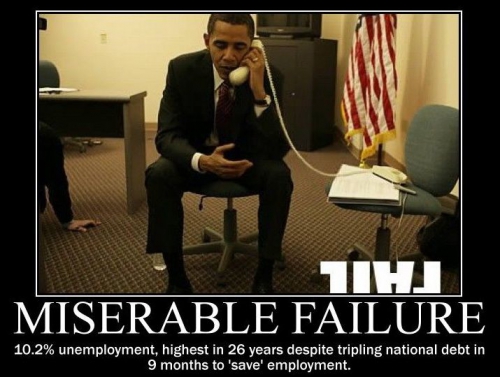
L’énigme Obama sur la corde raide
Ex: http://www.dedefensa.org
7 décembre 2015 – ... Et l’on notera aussitôt que certains des termes employés pour la présentation (chapeau/abstract) de ce Faits & Commentaires ont beaucoup à voir avec la présentation onirique du président des États-Unis que fait notre chroniqueur du Journal dde.crisis le 5 décembre. Le constat qu’on peut faire est que la perception du comportement de l’actuel POTUS ne cesse de s’aggraver, y compris et particulièrement à Washington et dans le monde des commentateurs US. Sur son site Sic Semper Tyrannis le 4 décembre 2015, le colonel Pat Lang fait remarquer, à la fin d’une présentation commentée des derniers sondages à propos de la candidature d’Hillary Clinton, ceci qui concerne directement et personnellement Obama (avec l’observation que la remarque sur “son récent comportement public” s’applique sans nul doute, notamment, à l’intervention d’Obama du 1er décembre à Paris, qui a particulièrement marqué Lang, – que nous avons signalée à la fin de notre texte du 3 décembre) : « The rumor is around town that President Obama is not functioning well. His recent behavior in public supports this rumor. If he keeps acting this way, the effect is bound to be bad for Clinton who cannot escape her service in his cabinet. »
Un texte de Robert Parry à propos de cette même “sortie” d’Obama va dans le même sens, comme le même Journal dde.crisis le signale dans l’article déjà référencé. (« Voir son article du 2 décembre où il analyse les incroyables écarts de langage et de considération d’Obama vis-à-vis des Russes, et notamment des Russes victimes du terrorisme, sans montrer le moindre intérêt pour les vérités-de-situation que le vaste appareil de puissance à sa disposition, ainsi que ses contacts internationaux, lui permettraient d’éventuellement découvrir. ») Il s’agit là de certains signes, aux niveaux de la communication et du monde médiatique, dont on verra plus loin qu’ils touchent même la presse-Système, qui impliquent ce qu’on nomme en termes mesurés de communication “la crédibilité du président Obama”, – pour signifier une “crise de crédibilité” d’Obama qui atteint, selon Parry, l’intensité des “crises de crédibilité” de Johnson et de Nixon en 1968 et en 1972-74, aboutissant à l’abandon de l’idée d’un deuxième mandat pour le premier, à la démission d’août 1974 pour le second.
On peut rapporter comme exemplaires de cette “crise de crédibilité” plusieurs cas pris volontairement dans différents environnements et différents médias, qui constituent des conséquences autant que des facteurs actifs de cette “crise crédibilité”. On notera bien entendu, – c’est même là l’essentiel, – que les avis critiques ou les attaques portées contre Obama concernent au moins aussi bien une attitude personnelle du président, un discours, une posture de communication, voire une psychologie, que sa politique elle-même.
• Un premier exemple est un commentaire de la part d’un journaliste italien, qui est effectivement exemplaire d’une considération de plus en plus courante dans le monde de la communication européen, hors des prises de position officielles qui se caractérisent par un vide à peu près équivalent à celui qu’on retrouve dans le comportement, l’esprit et la réflexion politique du président des États-Unis. Voici donc, dans L’Anarca, le blog du journaliste italien Giampaolo Rossi du Giornale, le 30 novembre, ce commentaire sous le titre de “La victoire de Poutine” : « Un récent sondage SWG, réalisé après les attentats de Paris, donne 49% d’approbation du public italien de l’opération entreprise en Syrie par le président de Russie, contre seulement 32% favorable à l’action des USA. Ce sondage est extrêmement intéressant si l’on a à l’esprit que l’Italie est historiquement un pays pro-américain, et que l’on a assisté ces dernières années, de la part des TV, de la presse et des intellectuels, à une constante béatification du président des USA, et à une constante diabolisation du président russe. Le cirque Barnum des talk-shows, les chroniqueurs, les think tanks et leurs universitaires, le climat délétère d'un pouvoir manipulateur, ne parviennent plus à transformer la réalité en une narrative adéquate malgré les ressources et l’argent utilisés dans ce sens.
« Poutine est approuvé pour la détermination et l'efficacité qu’il montre dans la lutte contre Daesh, malgré le prix très élevé qu’il doit payer. Obama est sanctionné pour l'ambiguïté qu’il montre à affronter le terrorisme islamiste; pour sa responsabilité (partagée avec les Français et les Anglais) dans le désastre libyen, la guerre la plus incompréhensible et la plus insensée de ces dernières années qui a ouvert la boîte de Pandore du djihadisme au Moyen-Orient; pour son oscillation entre des déclarations belliqueuses, des hésitations et les liens inexpliqués avec Daesh qu’il a contribués à créer et à financer. »
• Un autre exemple est celui de Charles Krauthammer, fameux éditorialiste et commentateur neocon, grand soutien tonitruant de toutes les guerres de GW Bush et de la politique-Système qui les conduisait. De Krauthammer, on attendrait qu’il soutînt, même s’il n’aime pas ce président (minimum syndical neocon à cet égard), les propos antirusses d’Obama, ricanant, sarcastique, tels qu’on les a vus dénoncés plus haut par Parry … Notamment ces propos du 1er décembre où Obama annonce aux Russes qu’ils sont embourbés dans un nouvel Afghanistan, après avoir expérimenté le premier. Krauthammer parlait sur Fox.News, la chaîne de Rupert Murdoch, parrain-financier de la tendance neocon et soutien enthousiaste de toutes les guerres du domaine, antirusse rabique, etc. ; et ce qu’il a dit est une critique aigu d’Obama, qui revient finalement, – objectivement dirait-on, – à une défense des Russes... Ainsi, l’attaque ne concerne-t-elle plus tant les politiques que le poids de plus en plus insupportables d’un discours qu’on jugerait quasiment halluciné, de la part de ce président caractérisé par cette « immense, cette écrasante vérité-de-situation que cet homme est vide, désespérément vide, inéluctablement vide. Obama n’est qu’une enveloppe, une sorte de “bulle” humaine, magnifiquement ornée et qui s’est cadenassée elle-même, presqu’avec jubilation et avec une sûreté de soi arrogante absolument inimitable, dans cette “narrative impénétrable”... » Là-dedans, il n’est pas tant question d’une politique que de l’insupportabilité d’une sorte de discours, d’une psychologie volontairement enchaînée, d’une “servilité volontaire ” (La Boétie) portée à des sommets inimaginables de hauteur (quantitativement parlant, en métriques).
Sputnik-français donne le 1er décembre une traduction dans notre langue de l’intervention de Krauthammer, qu’on trouve résumée sur Fox.News le 1er décembre 2015 : « Intervenant dans le programme Special Report sur la chaîne de télévision Fox News, l'éditorialiste américain Charles Krauthammer a soumis à une critique virulente les propos tenus par le président Barack Obama sur l'engagement de la Russie dans le conflit syrien. “...Obama a affirmé qu'à la différence de Poutine, il comprenait les intérêts de la sécurité nationale de la Russie, alors que Poutine ne les comprend pas” ... “Et Obama poursuit en disant que lorsque Poutine les comprendra, il changera sa position et se mettra de notre côté. Pour un type qui ne comprend rien aux intérêts nationaux de son propre pays, c'est une déclaration pour le moins remarquable”...
» Krauthammer a ajouté qu’Obama avait fait la remarque que Poutine “devrait avoir à l’esprit le souvenir de l’Afghanistan”, alors que “le pays qui est pris dans un bourbier en Afghanistan” aujourd’hui est, en fait, les États-Unis. “Les Russes se sont retirés d'Afghanistan il y a 25 ans. Obama est aux commandes des Etats-Unis depuis sept ans. Soixante-seize pour cent des pertes américaines au combat en Afghanistan ont eu lieu sous sa présidence et il est évident que notre position dans ce pays aujourd’hui est plus affaiblie que sept ans plus tôt quand il est arrivé à la présidence.” “En prétendant donner des leçons à Poutine sur l’intérêt nationale et sur l’embourbement, il se trouve plutôt dans une position ridicule.” »
• Dans un tout autre domaine, on peut considérer comme très révélatrice une très récente intervention de l’amiral (à la retraite) James A. (Ace) Lyons, ancien commandant en chef du Pacifique et ancien vice-chef d’état-major (Vice-Chief of Naval Operations) de l’US Navy, le 5 décembre dans le Washington Times, reprise par Russia Insider le même 5 décembre, sur les activités islamistes d’Erdogan, et la position selon lui incontestable de soutien et d’alliance active de la Turquie avec Daesh. Il y a dans cet article un passage qui met en cause directement l’administration Obama en l’accusant implicitement d’un acte, dans une action militaire offensive, qui est jugé comme équivalent à une trahison. (Cette même critique a été reprise par des parlementaires lors de l’audition à la Commission des Forces Armées de la Chambre, décrite dans notre texte du 3 décembre, notamment par l’ancienne pilote de chasse de l’USAF Martha McSally : « D’autres sujets polémiques ont été abordés, comme le fait d’avertir les chauffeurs des camions transportant le pétrole des terroristes d’une attaque prochaine, certains élus se demandant au nom de quoi il fallait considérer que ces chauffeurs n’étaient pas des adversaires au même titre qu’un combattant de Daesh. »)
« Since ISIS is a sworn enemy of the United States and Mr. Obama’s latest strategy is to “contain and destroy” ISIS, the question must be raised: Why hasn’t Mr. Obama demanded that Mr. Erdogan cut not only the ISIS supply lines going through Turkey, but also terminate its purchase of black market oil? Another question: After a 16-month U.S. air campaign to destroy ISIS, why haven’t the organization’s oil facilities been destroyed? Why are we now just getting around to destroying ISIS’ oil trucks? A CENTCOM spokesperson announced with “some pride” that prior to destroying 160 oil trucks recently, U.S. planes dropped leaflets telling the drivers that we were going to strike those oil trucks. We then apparently made several low passes to further scare off the drivers. This “faculty lounge” logic makes absolutely no sense. This type of so-called “humanitarian concern” only will jeopardize our own pilots and aircraft. It is only a matter of time before ISIS uses such prior notification to guide its shoulder-fired missiles, causing the loss of American pilots and aircraft.
» This is the same type of illogical thinking that went on in Vietnam. Secretary of State Dean Rusk would pass to the Swiss Embassy in Washington the targets we were going to strike the next day with instructions to pass them to the North Vietnamese through their embassy in Hanoi. The logic was that we hoped North Vietnamese officials would tell their workers to stay home that day, since we didn’t want to inflict civilian casualties. The North Vietnamese concentrated their surface-to-air missiles and anti-aircraft artillery around those targets and that’s why our pilots encountered such devastating resistance, which cost the lives of many American pilots and POWs. What Rusk and the Johnson administration did was unconscionable, and they should have been tried for treason. We are seeing this same nonsense today in Iraq and Syria. If the Joint Chiefs of Staff don’t formally object to these type of procedures, then they must be held accountable. »
Cette sortie de l’estimable et vénérable amiral Lyons, dont la tendance militariste “dure” est évidente et conforme à sa carrière et à sa position, annonce peut-être bien une relance des accusations déjà lancées contre Obama, mais cette fois dans une période extrêmement intense, où l’attitude des USA vis-à-vis de Daesh et le soutien US à la Turquie/Edogan-alliés-de-Daesh pourrait donner du crédit à ces accusations, – ce crédit dont Obama, lui, manque désespérément. En janvier dernier (2015), Lyons avaient lancé des accusations lors d’une intervention publique au National Press Club (DVD mis en place le 4 février 2015 sur Youtube). Il s’agissait de l’accusation, – qui n’est pas inédite mais qui pèse bien plus lourd sous la plume d’un amiral quatre étoiles de l’US Navy, – d’infiltrations massives d’éléments des Frères Musulmans dans divers services et agences de la sécurité nationale aux USA, et dans l'adminstration elle-même bien sûr. (« Admiral James A. “Ace” Lyons, speaking at the National Press Club in January, says that under Obama’s guidance, the Obama Regime has been infiltrated by the Muslim Brotherhood terrorism front group, saying that the radical anti-freedom organization has penetrated every U.S. security agency. Admiral Lyons said that “the transformation of America has been in full swing ever since 2008,” the year Obama was elected based upon his campaign promise to “fundamentally transform America.” »)
L’amiral Lyons, qui n’est pas seul dans cette mésaventure, relayait le même type d’accusations lancées par d’autres officiers généraux US à la retraite, assorties de l’avertissement qu’une telle situation de collusion entre Obama et Daesh/Frères Musulmans/etc. pourrait amener une “crise constitutionnelle” et justifier un coup de force des forces armées US contre le président (DVD le 4 septembre 2014 sur Youtube : « In an interview with Trunews, Retired U.S. Air Force Lt. General Thomas McInerney and Retired U.S. Army General Paul Vallely spoke about the possibility of a Constitutional Crisis that may occur if Barack Obama refuses to protect the American people from the threat of ISIS and radical islam. The Generals also said that it may come to the point where the US Military may have to remove Obama from office. The Generals also stated that Obama has moved the US stance on Terrorism from one of fighting against it to one of providing it aid and comfort. ») Entretemps, – et cela montrant bien qu’il y a là une offensive concertée qui doit être jugée pour sa crédibilité à elle en fonction de la situation crisique présente, – le site NewzVids a repris le DVD des deux officiers généraux et l’a remis en ligne le 18 novembre 2015.
Qu’il y ait dans tout cela “à boire et à manger”(vrai-faux, complot-ou-pas) ne nous importe en aucune façon, essentiellement parce qu’il n’y a strictement aucune référence principielle ferme à opposer à ces critiques, à ces attaques sinon à ces menaces de putsch puisque l’autorité légitime qui pourrait effectivement avoir raison de ces critiques, de ces attaques et de ces menaces de putsch n’a plus ni autorité, ni légitimité. C’est ce que Robert Parry désigne, avec l’évidence de son côté, comme “la crise de crédibilité” du président des États-Unis, et nous en venons au fait lui-même...

Vide de l’autorité, caricature de la légitimité
C’est effectivement dans un long texte, hier 6 décembre sur son site ConsortiumNews, que Parry nous parle de la “crise de crédibilité d’Obama”, la comparant aux pires crises du domaine (le pouvoir exécutif) dans l’histoire moderne des USA, particulièrement celle de L.B. Johnson en 1967-1968, conduisant à son renoncement à un second mandat présidentiel le 31 mars 1968, et celle de Richard Nixon, conduisant après les péripéties du Watergate à sa démission du 9 août 1974. (Le troisième exemple que donne Parry, – celui de GW Bush, – étant un simple exemple d’opportunité à notre sens, comme amorce de la crise du pouvoir développée avec Obama. Effectivement les précédents de Johnson et de Nixon constituent un seul précédent presque mimétique à celui de GW Bush-Obama, dans la pire période de crise des USA du XXème siècle avec la Grande Dépression puisqu’il s’agit d’une crise du pouvoir continu des années 1965-1975.) « Indeed, Obama arguably suffers from the worst “credibility gap” among the American people since Lyndon Johnson and Richard Nixon on the Vietnam War or at least since George W. Bush on the Iraq War. As eloquent as he can be, average folk in the U.S. and around the world tune him out. »
Parry développe alors sa critique habituelle de toutes les avanies subies ces dernières années, du fait du montage permanent, de la “narrative infranchissable” qu’a constitué la communication de la présidence US, pour justifier et développer des caricatures de politiques, à la fois infâmes et totalement désarticulées sinon complètement inverties. C’est dans ce paysage insaisissable, marécageux et complètement inepte que l’autorité et la légitimité du président se sont non seulement déstructurées mais dissoutes jusqu’à atteindre une complète entropisation. Avec un souci louable du détail, Parry, combattant infatigable d’une remise en ordre des vérités-de-situation contre les absurdités rocambolesques des narrative, rappelle les divers épisodes, depuis au moins le montage de l’attaque chimique en Syrie en août 2013, en passant par les péripéties de la crise ukrainienne, l’énorme épisode de la destruction du vol MH-17 au-dessus de l’Ukraine orientale en juillet 2014, et ainsi de suite.
Il y ajoute les tensions considérables que la présidence Obama a alimentées aux USA même, jusqu’à créer une situation de crise larvée, de divisions, de haines intercommunautaires, etc., sans guère de précédent. Cela vaut notamment par la façon dont ont été exacerbées la colère, sinon la rage, de la classe moyenne à majorité blanche des USA, ce qui fondait auparavant la gloire de la prétendue réussite de l’American Dream. Que l’on accepte ou pas cette définition comme forme d’un “rêve de bonheur” accompli, – et nous sommes naturellement de ceux qui rejettent absolument cette définition mais c’est un autre débat, – il reste que l’existence de cette classe moyenne constituait un fait, une “vérité-de-situation” pour dire au goût du jour, absolument indéniable du point de vue américaniste de la conformité aux ambitions des forces développant la structure de cette puissance.
Certes, des décennies de dérive néo-libérale, de libre-échangisme échevelé, de complète dérégulation du système financier, enfin de gangstérisme politique et de corruption vénale et psychologique ont été employées avec le plus grand zèle à la destruction de cette classe moyenne. (« The hard truth is that the Great American Middle Class indeed has been sold out. ») ... Cela, jusqu’à sa complète disparition avec la présidence et la bénédiction à la fois d’Obama qui se présentait à l’élection de 2008 comme son sauveur (de la classe moyenne), qui prétendait renverser la tendance finale initiée par GW Bush et l’a au contraire poursuivie sinon accélérée ; et cela ouvrant la voie à une super-crise du pouvoir US qui va s’exprimer dans les élections présidentielles à venir et qui s’exprime d’ores et déjà dans la position privilégiée dans la course à la désignation républicaine du fameux The Donald, clown devenu sauveur-potentiel de l’American Dream :
«... This white rage has fueled the race-baiting and anti-immigrant campaigns of billionaire Donald Trump and other political outsiders in the Republican Party. Trump has soared to the top of the GOP presidential field because he says a few things that are true – that rich people have bought up the political process and that trade deals have screwed the middle class – giving him an aura of “authenticity” that then extends to his uglier comments.
» Americans are so starving for a taste of honesty – which they’re not getting from Obama or other members of the elite – that they will believe a megalomaniacal huckster like Trump. After all, they know that what they get from Obama and his clique is manipulative spin, treating them like dummies to be tricked, not citizens of a Republic to be respected... »
Cette situation est le fruit, d’abord et avant tout, d’un climat dévastateur pour les psychologies, d’un refus permanent de toute reconnaissance de la réalité, dans un monde où effectivement la réalité a été pulvérisée. Encore plus que les mauvaises conditions économiques, les crises de politique extérieure, etc., cette mensongerie perpétuelle sous la forme d’une “narrative infranchissable“ qui est aussi une “narrative obsessionnelle” et une “narrative pathologique” si illustratives de l’état délabré de l’esprit et du déséquilibre psychologique terrifiant de la direction-Système, pèse d’un poids absolument considérable sur la psychologie collective de la population, donnant à la crise une dimension effrayante même si elle est fort peu documentée par la presse-Système qui continue aveuglément à chanter les louanges du Système, – évidemment. Les remarques de Parry vont bien entendu dans ce sens...
« Some people defend Obama for not admitting a mistake because to do so would undermine U.S. credibility, but I think the opposite holds true, that a frank admission that there was a misguided rush to judgment would be refreshing for Americans who are sick and tired of spin... [...] To say that such a division is not healthy for a democratic Republic is to state the obvious. Indeed, a democratic Republic cannot long survive if government officials insist on managing the people’s perceptions through propaganda and disinformation... »
Parry a pris l’habitude dans ses textes pleins de désespoir sur l’état du pouvoir de l’américanisme de ne jamais désespérer tout à fait. Cette fois, il sacrifie encore à ce digne penchant mais, frankly speaking, le cœur n’y est pas. Dans trois paragraphes, il suggère ce qui pourrait être une tentative ultime d’empêcher quelque chose, – nul ne sait quoi mais tout le monde sent bien que cela approche, – qui serait une catastrophe... Il suggère finalement, pour en revenir à l’analogie évidente qui fut la nôtre dès l’origine de la candidature Obama, de se lancer dans une sorte de glasnost, pour être, in extremis, l’“American Gorbatchev” qui, seul, pourrait sauver quelques restes de vieux meubles.
« I have long advocated that Obama should go on television in the style of President Dwight Eisenhower’s farewell address in 1961, sitting in the Oval Office, hands-folded, none of Obama’s glitzy stage-craft, and simply level with the American people.
» Before the speech, Obama could release the 28 pages from the congressional 9/11 report about Saudi support for the hijackers. He also could release other U.S. intelligence analyses on the role of the Saudis, Qataris and Turks in supporting Al Qaeda and ISIS. He could toss in what U.S. intelligence analysts have concluded about the 2013 sarin gas attack in Syria and about the 2014 shoot-down of MH-17 in Ukraine.
» To the degree that the U.S. government had misled the American people, the President could fess up. He could explain how he and other government officials were seduced by the siren song of the propagandists who promised to line up public opinion behind a policy with no muss or fuss. He could admit that such manipulation of U.S. citizens by the U.S. government is simply wrong. »
Inutile d’ajouter que Parry, on le comprend aisément, n’a aucun espoir sérieux que ces conseils soient pris en considération, ni seulement entendus, ni même lus cela va de soi, par l’homme derrière la “narrative infranchissable” ... Au bout tout de cela, bien entendu et une fois encore, il y a l’énigme Obama, mais il y a en plus la fin de la présidence Obama. Sur Obama, Parry en tient pour son explication qu’il nous a présentée plus d’une fois, et qui n’est certainement pas plus sotte ni courte qu’une autre, même si elle a tendance à ne pas nous suffire. Il s’agit de cet Obama devenu étrange, lui qui est si plein de suffisance et de maîtrise de soi, et qui pourtant bataille pour rester “comme-il-faut”, bien conforme à ce Washington qui dévore ses présidents, plein d’admiration devant cette House of Cards (“château de cartes”) qu’il a l’air de considérer comme une forteresse aussi inexpugnable que la narrative sur laquelle il ne cesse de s’appuyer, qui a l’air enfin, après sept années passées à la Maison-Blanche, de douter de sa propre capacité à être “adopté” par ce Washington-là... « President Barack Obama seems to want so desperately to be one of the elite inhabitants of Official Washington’s bubble that he keeps pushing narratives that he knows aren’t true, all the better to demonstrate that he belongs in the in-crowd. It has reached the point that he speaks out so many sides of his mouth that no one can tell what his words actually mean. »
En effet, nous disons plus haut (et l’important ici est bien ce que nous soulignons de gras) : “il y a l’énigme Obama, mais il y a en plus la fin de la présidence Obama”... Nous voulons dire, ces onze mois (en réalité treize avec la passation des pouvoirs) qui risquent d’être si agités, où la thèse habituelle selon laquelle Obama veut simplement contenir la situation actuelle pour laisser les très nombreuses patates chaudes à son/sa successeur semble parfois démentie par certaines actions que le président ordonne ou laisse faire. A cette lumière, dans l’ambiance électrique que nous connaissons, les doutes et soupçons sur les “mauvaises fréquentations” d’Obama telles qu’on les a vues évoquées plus haut par des militaires, et quelque réalité qu’elles aient, risquent de précipiter certaines situation de tension extrême.
Ainsi subsistera jusqu’au bout, jusqu’au dernier des derniers jours de son mandat, l’énigme Obama, – et encore, s’il y a un “dernier jour” constitutionnel à son mandat. La “crise de crédibilité” du président Barack Hussein Obama ne concerne plus vraiment sa politique mais simplement sa posture, son comportement, son caractère, sa psychologie, – c’est-à-dire lui-même. Finalement, Obama c’est un peu comme Assad-selon-Fabius : cet homme “ne devrait pas exister”, d’ailleurs peut-être n’existe-t-il pas. Peut-être est-il, comme Assad lui-même après tout, peut-être Obama est-il le diable, après tout ? Ou son représentant, quoi, mais alors qui aurait des ratés que tout le monde peut observer aujourd’hui : « The rumor is around town that President Obama is not functioning well. »




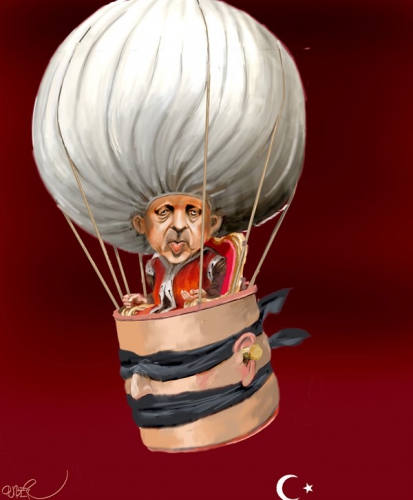

 del.icio.us
del.icio.us
 Digg
Digg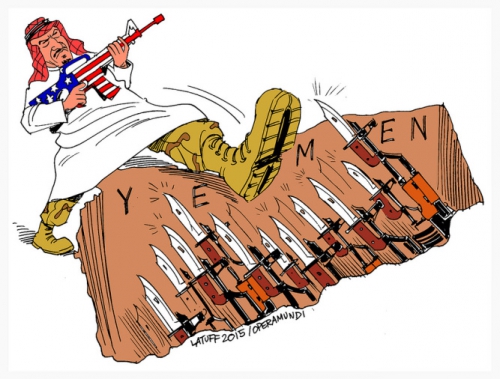

 Depuis un certain temps déjà, on polémique contre tout et tous ceux qui soulignent en Allemagne l’importance de la souveraineté nationale. Cette polémique s’est renforcée massivement au cours des dernières semaines et fait preuve – de la part de la politique dominante établie et de quelques institutions publiques – de paroles et d’actes de tendances clairement discriminatoires et illicites. Il faut donc aussi prendre en considération que l’on entreprend des «opérations sous de fausses bannières» suite à des motivations de politique intérieure.
Depuis un certain temps déjà, on polémique contre tout et tous ceux qui soulignent en Allemagne l’importance de la souveraineté nationale. Cette polémique s’est renforcée massivement au cours des dernières semaines et fait preuve – de la part de la politique dominante établie et de quelques institutions publiques – de paroles et d’actes de tendances clairement discriminatoires et illicites. Il faut donc aussi prendre en considération que l’on entreprend des «opérations sous de fausses bannières» suite à des motivations de politique intérieure. 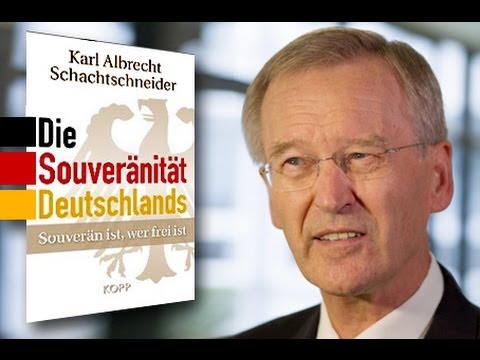 A propos: les Etats nationaux souverains étaient et sont naturellement en mesure de trouver des accords internationaux et de conclure des contrats face à des tâches transfrontalières. Ils sont capables de trouver des solutions correspondantes à la volonté des peuples concernés. Des traités ayant des partenaires contractuels égaux en droits et souverains, suivant les principes de la bonne foi – qui peuvent cependant aussi être annulés et renégociés si les peuples le désirent.
A propos: les Etats nationaux souverains étaient et sont naturellement en mesure de trouver des accords internationaux et de conclure des contrats face à des tâches transfrontalières. Ils sont capables de trouver des solutions correspondantes à la volonté des peuples concernés. Des traités ayant des partenaires contractuels égaux en droits et souverains, suivant les principes de la bonne foi – qui peuvent cependant aussi être annulés et renégociés si les peuples le désirent. 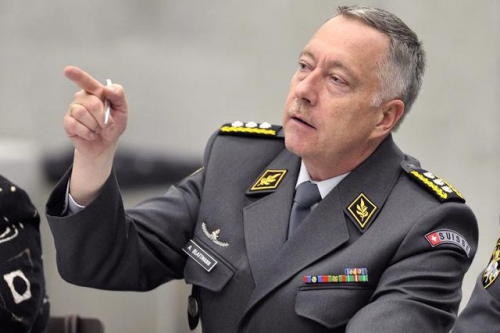
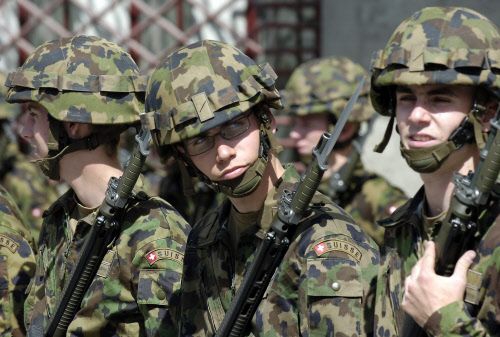

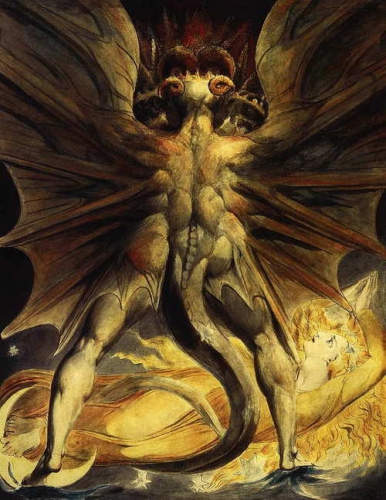
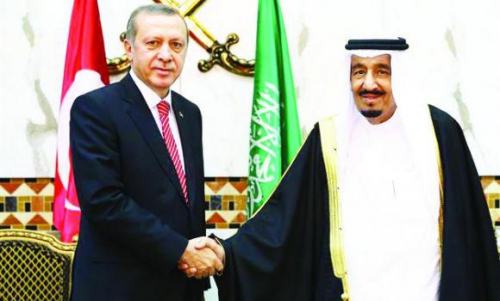
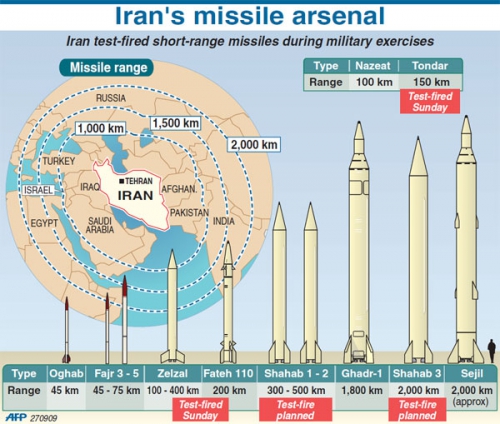
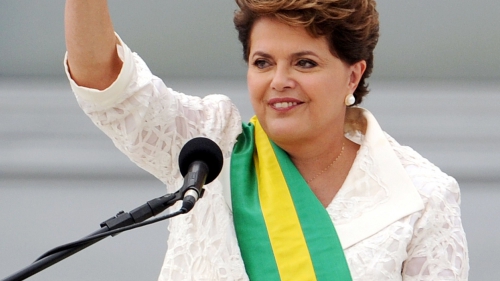
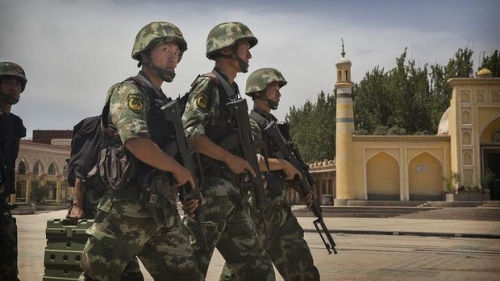
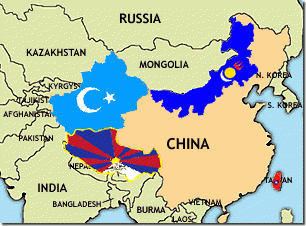 Seymour Hersh, chroniqueur diplomatique et politique réputé, souvent accueilli dans la London Review of Books, vient de publier un article
Seymour Hersh, chroniqueur diplomatique et politique réputé, souvent accueilli dans la London Review of Books, vient de publier un article 
![prewp18rutop[1].jpg](http://euro-synergies.hautetfort.com/media/00/02/3863888964.jpg)

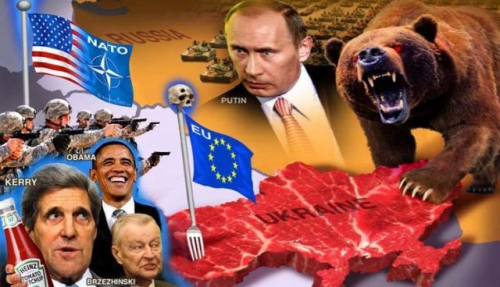
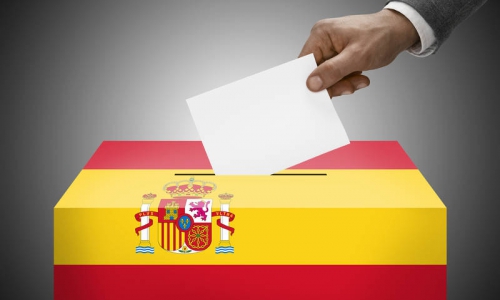

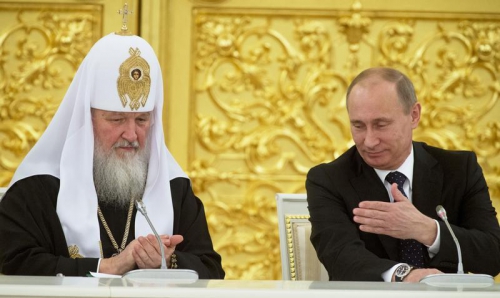



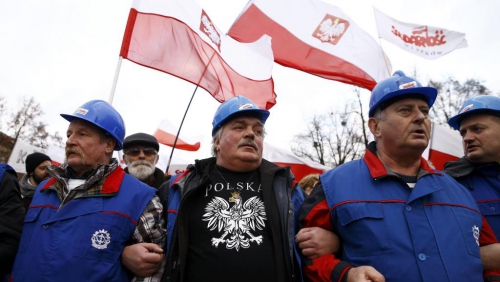

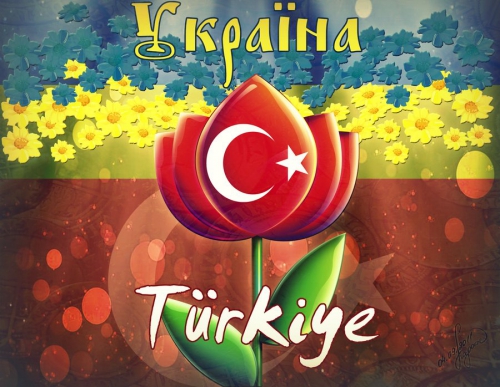
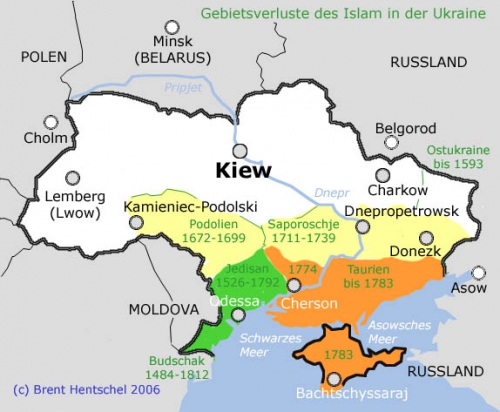
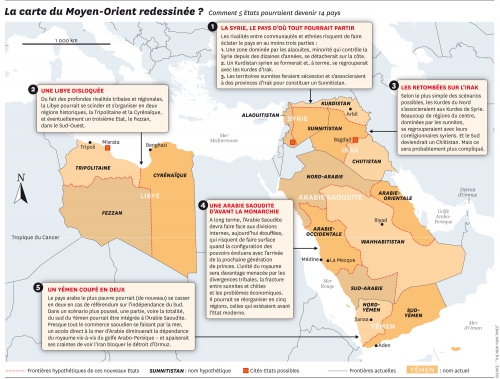

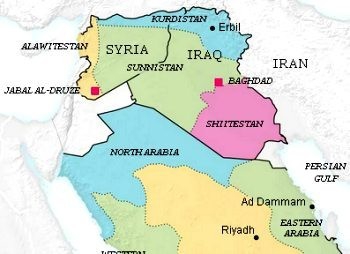 De ce fait, les Alaouites sont considérés par l’islam sunnite comme les pires des hérétiques et au XIVe siècle le juriconsulte salafiste Ibn Taymiyya, ancêtre du wahabisme actuel a émis une fatwa demandant leur persécution systématique et leur génocide.
De ce fait, les Alaouites sont considérés par l’islam sunnite comme les pires des hérétiques et au XIVe siècle le juriconsulte salafiste Ibn Taymiyya, ancêtre du wahabisme actuel a émis une fatwa demandant leur persécution systématique et leur génocide.